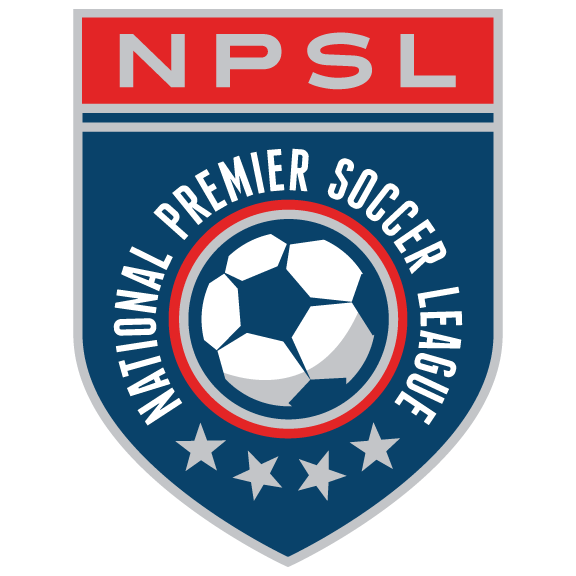As Soccer Grows in America, the NPSL Becomes Even More Important as a Pipeline to the Pros
The recently hired Managing Director, Jef Thiffault, brings nearly 20 years of organizational and leadership positions in the sport of soccer to the National Premier Soccer League (NPSL)
Joining Chairman Joe Barone, Thiffault is responsible for directing the evolution and growth of the NPSL as America’s love affair with soccer deepens. An amazing journey, the growth of the NPSL — which became the largest national soccer league in the US Soccer development pyramid with over 80 teams in 2014 has a clear mission for the future.
NPSL’s mission is to grow the sport of soccer in the United States of America.
It is Thiffault job to help take the NPSL to become the foundation of the US Soccer development pyramid with more than 100 profitable teams in 100 communities. Who is this man with the job of managing this successful, member-run league? Meet Thiffault.
Thiffault worked for Major League Soccer (MLS) and Soccer United Marketing (SUM) in a variety of league and event management roles. Following his time at MLS and SUM, Thiffault founded Contigo Sports Management, a consulting company primarily focused on soccer with strengths in event management, strategic planning and sponsorship. Thiffault graduated with a double major in Sports Management and Business Administration from the University of New Haven and gives back through their Student-Mentor Program. Thiffault is also a member of the University of New Haven’s Institute of Sport Management Advisory Board and a board member for the Claudio Reyna Foundation.
Check out SoccerToday’s interview with Jef Thiffault, Managing Director for the National Premier Soccer League:
Diane Scavuzzo: Why did you join the NPSL?
Jef Thiffault: I officially started as Managing Director of NPSL in mid-November of last year. I’ve been very interested in NPSL for several years and had maintained substantive yet casual conversations with board members. I became convinced of the potential of NPSL prior to my being hired and feel even more so today. I’m thrilled to be a part of the NPSL.
Diane Scavuzzo: Does the NPSL want to continue to be a stepping stone to becoming a professional player? For example, MLS’s top goal scorer for two seasons – Chris Wondolowski – who got his start in the NPSL …
Jef Thiffault: Yes, we are proud to help players move to professional teams and want to continue serving as a pipeline to the pros. Currently we have players competing in MLS, NASL, USL, and a number of overseas leagues. Just to highlight a few, Portland Timbers’ Chris Klute, Vancouver Whitecaps FC’s Tim Parker, New York City FC’s Kwadwo Poku, New York Red Bulls’ Chris Duvall, D.C. United’s Miguel Aguilar and Kofi Opare are all former NPSL’s players doing great work at the highest levels of the game.
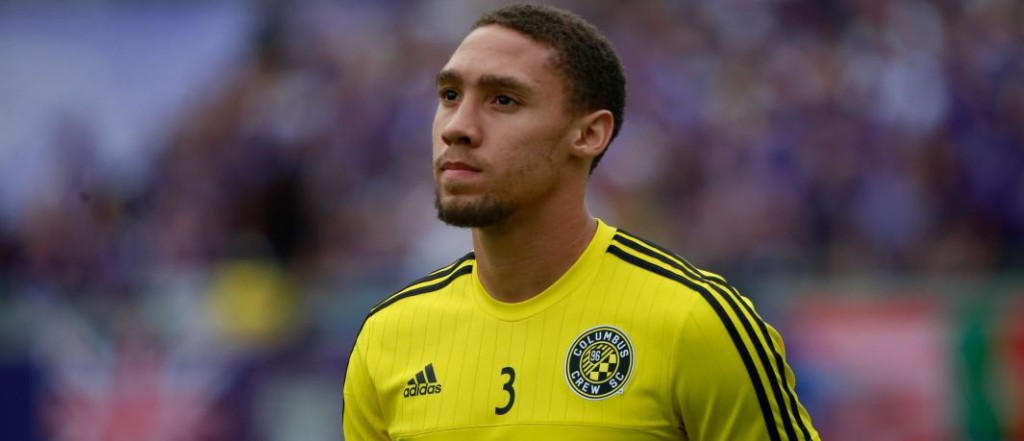
NPSL has a tremendous developmental philosophy and more and more of our former players join the pro ranks each and every year. We have had a strong showing in the MLS SuperDraft the past few years and our player combine was well-attended by scouts from across North America. It is a great time to be a player, owner, fan, or supporter in the NPSL.
Diane Scavuzzo: When did you become involved in soccer?
Jef Thiffault: I grew up playing and loving the game, but never at a remarkable level. I have dual USA-Bermuda citizenship and the rich Portuguese and British culture on the island taught me a lot about the sport during the times I’ve spent there.
I interned at Major League Soccer (MLS) when I was in college. I wanted to work in soccer and joined the MLS after I graduated. Dr. Joe Machnik, whom I knew when I was an undergrad at the University of New Haven, was my first boss. Machnik really helped me appreciate the returns a dedicated life to this game offers. Still today,Machnik is a dear friend and remains one of many great mentors.
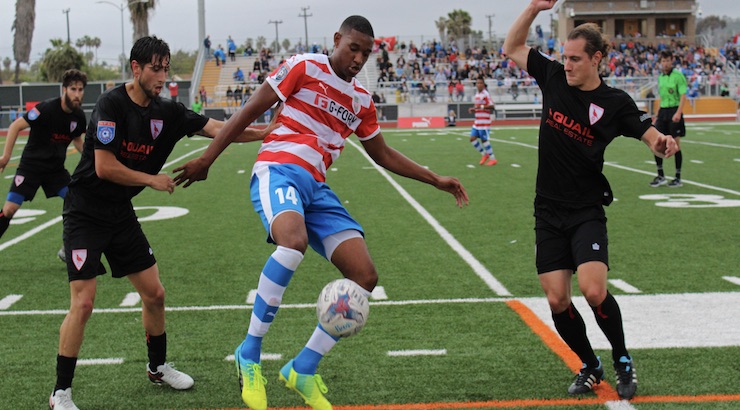
Diane Scavuzzo: Is the NPSL different or similar to MLS?
Jef Thiffault: I think there’s more similarities than differences between the NPSL and the MLS.
At any level, whether it’s in front of 90,000 people at the Rose Bowl or a county league match with friends in a park, you are responsible for the same basic elements being perfect; the ball, the referees, the field, the equipment, the rules and sometimes the simplest things become complicated if you’re not diligent.
The NPSL and MLS matches are the same in these respects, and you must always start with the game and build outwards. The two mens’ soccer leagues are also similar because you’re spending time every day thinking about the best ways to get your message heard — showing your appreciation for the relationship with your fans and partners, best-positioning your league as a member of the domestic and international soccer landscape and responsibly growing this sport. You’re also constantly thinking about how to make the most of the resources available to you.
The biggest different versus MLS is the size of NPSL. We have over 80 NPSL teams. I wish I could go spend one week in each team’s market, learning about their relationship to the community, getting a deeper understanding of their team and taking away opportunities to help them reach their goals. There are just not enough weekends.
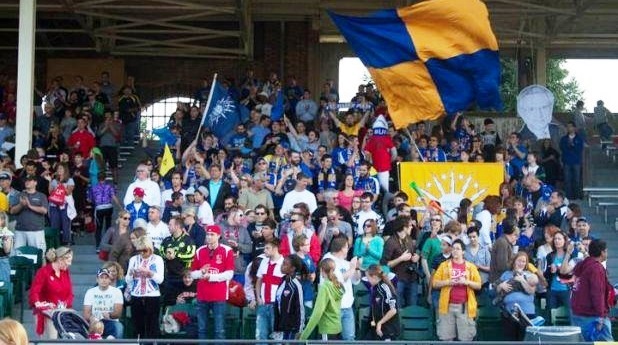
Diane Scavuzzo: As Managing Director of NPSL, what are your goals?
Jef Thiffault: My immediate goal is to ensure that NPSL continues to run really well. The NPSL keeps growing at a 15-20% annual rate, and my goal is to make sure we provide best in class service and support to our teams on behalf of our league staff and our partners.
From an overall staffing and partner perspective, I’m thrilled with the passionate people we have coordinating and supporting the NPLS on a daily basis. We are proud to have 15 teams in this year’s Lamar Hunt U.S. Open Cup and want to support them from an administrative standpoint every way we can.
Longer term goals, to name a few, include managing our expansion in a responsible manner, strengthening our relationships with our current commercial partners and working with new ones, amplifying our message, delivering even more value to our teams and players, strengthening our long term strategic plans, and contributing to the development and growth of the sport in the North American region.

Diane Scavuzzo: How do you help players in the NPSL get a chance to play pro soccer?
Jef Thiffault: One of the things we are most proud of is our annual player NPSL Player Combine. NPSL is the only men’s league in the country, other than Major League Soccer, that produces an annual player combine.
Once players arrive in market for the NPSL Player Combine, there are no expenses for them and no fees to pay.
It represents a significant financial commitment, but one that we believe is an important showcase for NPSL. How we help the players that want to move to the pro level is something we’ll spend a lot of time considering in the next year.
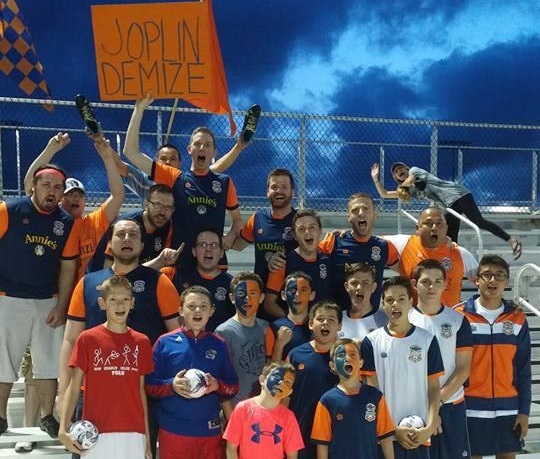
Diane Scavuzzo: Who do you believe is the NPSL’s biggest rival?
Jef Thiffault: Our national strength is based on the success of our regions, so concurrently our threats are based on challenges within our regions. At its essence, NPSL is a member driven, non-profit organization. We believe NPSL’s corporative spirit, financial model and philosophy sets us apart from other options for teams to associate and is a driving force for our measurably explosive growth.
Diane Scavuzzo: What was it like working with CONCACAF Gold Cups?
Jef Thiffault: The CONCACAF Gold Cup is the most significant recurring tournament in the hemisphere. It’s an honor to be a part of it and very exciting to work in tandem with representatives throughout our Confederation and domestically toward a common goal. I cherish the friendships and connections that I’ve made through my involvement.
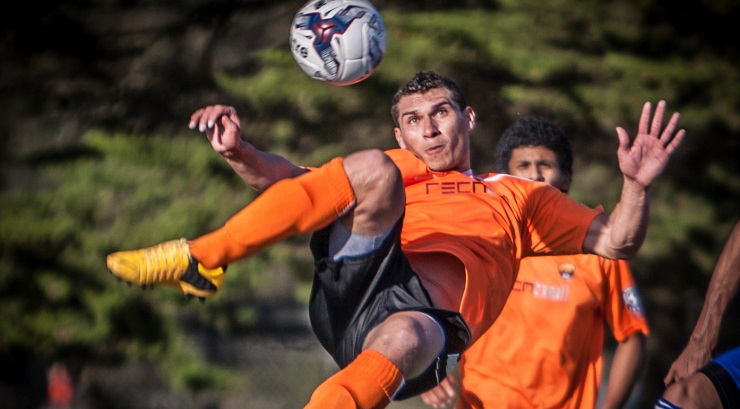
Diane Scavuzzo: How has soccer changed, since you became involved?
Jef Thiffault: It’s grown exponentially; MLS is in a completely different state than when I first joined in 1999 as are all leagues in the pyramid. A company like Contigo probably would not have existed six years ago.
When you speak with companies to pitch their involvement in soccer, you’re rarely told, “no thanks” anymore.
The average soccer fan is much more informed, savvy, and demanding. Soccer at all levels in this country is flourishing.
Diane Scavuzzo: How important is it for NPSL to work with youth soccer clubs?
Jef Thiffault: Many NPSL teams are formally part of youth soccer clubs. NPSL teams and youth soccer clubs, whether through a formal or informal relationship, have a lot to offer each other, and we continue to support these types of partnerships.
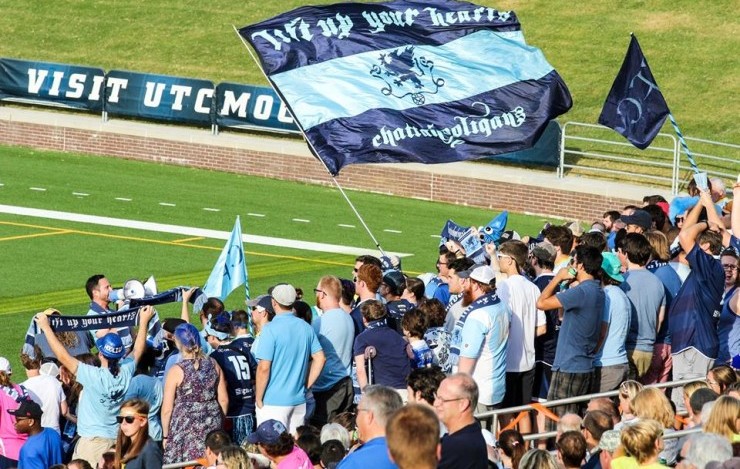
Diane Scavuzzo: How can NPSL teams successfully promote the game?
Jef Thiffault: NPSL teams can measure their success of promoting the game based on their ability to reach and connect with their local communities to create fans. Successful teams reach their entire market through a combination of community outreach, a fun game day environment, winning on the field, connecting with youth soccer groups, and providing valuable access to the team. I’d like to see every team be successful at all these initiatives, but again it comes back to an allocation of resources. Some teams, frankly, do not have 10,000 people in their database and a sold-out stadium as part of their mission; they just want to run the best team they can produce for sporting reasons. NPSL’s platform lets all of these types of teams flourish.
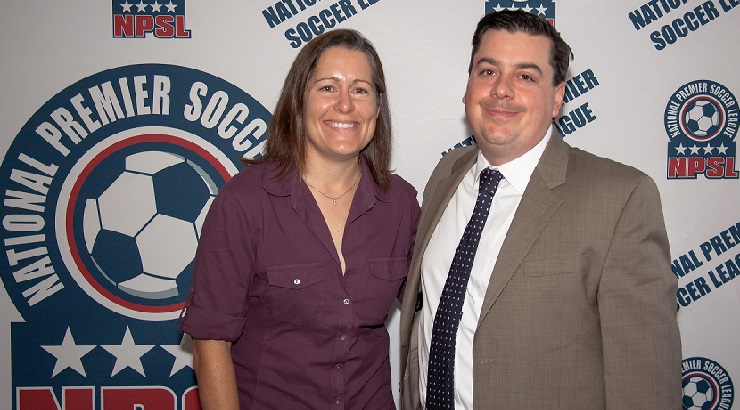
Diane Scavuzzo: Do you feel that NPSL is doing a good job with the challenges of amateur/pro men’s soccer?
Jef Thiffault: I think NPSL is doing a tremendous job as a platform for amateur/pro men’s soccer. NPSL is, at its essence, an amateur league and a proud member of USASA that offers many avenues to players who wish to achieve goals in their playing career.
Some players want to be the best NPSL player in their market and want to be a long-term impactful member of that community. Other players want to play while they are in college and don’t jeopardize their eligibility by playing on a team that consists of all amateur players. Some players enjoy the ability to play at a high level before retiring – no matter what age, while others undoubtedly see their time in NPSL as a stepping stone, and we want to help all our NPSL player reach their next step.
We have an incredible relationship with NASL, and they have affiliated teams playing in NPSL. We have a world-class player like Adriano at Miami United who has stated that he wants to play in our league and prove his caliber to other teams around the world. Any player in the world would want to be on the same field as Adriano with Miami United or Miguel Sabah with Corinthians FC of San Antonio to name a few. NPSL offers many opportunities and many solutions to thousands of players nationwide.
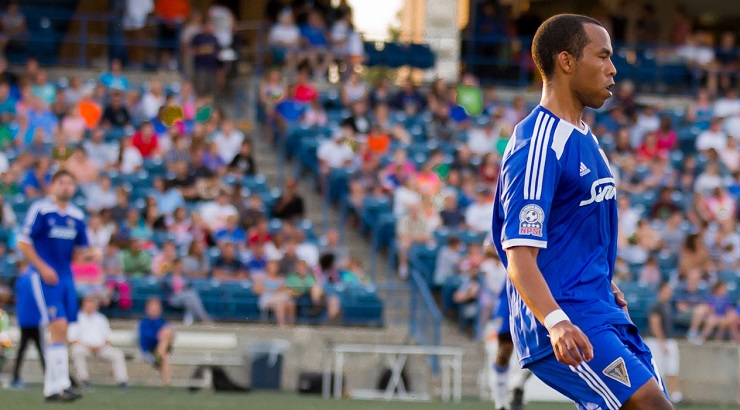
Diane Scavuzzo: NPSL has teams in over 80 markets across the country – are there areas in need of more competition or are you concerned about future expansion?
Jef Thiffault: Our Chairman Joe Barone leads our conversations on expansion and deserves the credit for the recent growth of the NPSL. We literally receive correspondence every week from new and existing teams expressing strong interest in joining NPSL. That speaks to our turnkey team operations, financial model, and the value we deliver to our teams.
Our challenge is to effectively manage our growth, but we expect that to continue in many respects through the support and cooperation of our existing members.
We write on our website and internal documents, “WE COMPETE FOR 90 MINUTES ON THE FIELD…WE ARE BUSINESS PARTNERS ALWAYS,” and we mean it.
Diane Scavuzzo: Would you like to see European style promotion and relegation exist in the USA?
Jef Thiffault: It’s not something I spend a great deal thinking about in the current North American landscape. However, as a custodian of the NPSL and someone motivated to make this sport succeed at every level in the country, I’m open to any discussion or idea that is innovative and practical.
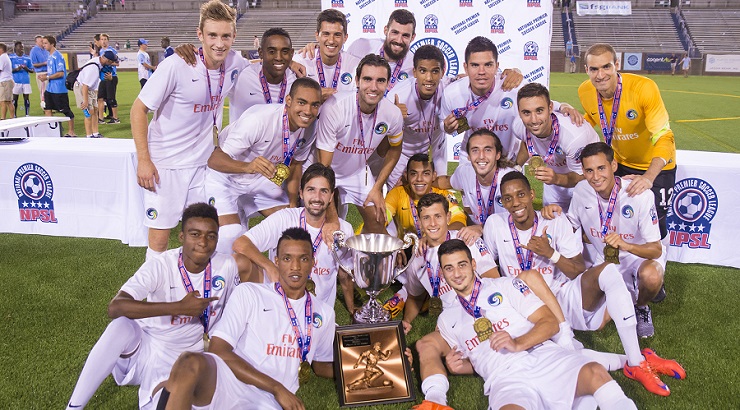
Diane Scavuzzo: What is the greatest challenge for every NPSL team?
Jef Thiffault: Some of our teams may have a different view, but I think it’s how resources are allocated. No matter which NPSL team it is, we have, like most organizations, finite budgets, and often people have to wear more than two hats. We have to be diligent and creative about how we spend time and money. We are not Real Madrid with a group of people working in a department dedicated only to social media; however, our teams have the ability to capitalize on their local/grassroots reach backed up by a strong national and regional footprint.
Diane Scavuzzo: What is the one moment in time you would like to turn back the clock and change?
Jef Thiffault: I would have learned a second language when I was younger. I can barely get by speaking Spanish, but I can read and write it fairly well. Working in this sport, speaking a new language opens up so many door and experiences and allows you to more deeply connect with the passion that runs through this global sport.
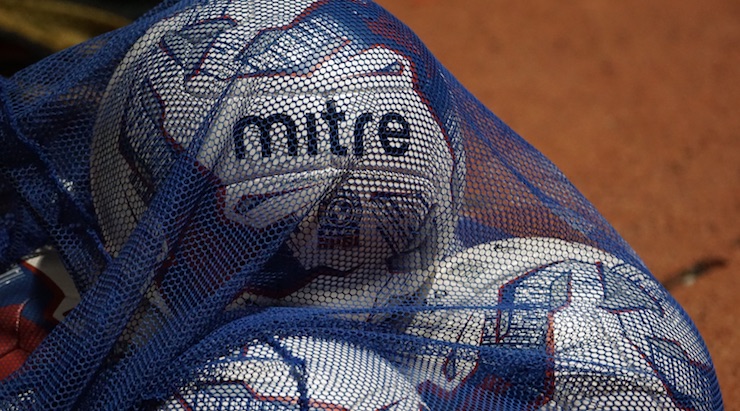 Diane Scavuzzo: If you could pick any super power, what would it be and why?
Diane Scavuzzo: If you could pick any super power, what would it be and why?
Jef Thiffault: Playing like George Best, Messi or Ronaldo of course.
Diane Scavuzzo: Who is your favorite soccer team or player? Who do you root for behind closed doors?
Jef Thiffault: I have Scottish roots on my father’s side, and I’ve been told I’m related to former Scotland/Manchester United winger Willie Morgan. This lead to me supporting Manchester United. I have a dear friend that founded the One United USA Supporters Club, and he has greatly helped me connect to the club. I also have signed Ryan Giggs and Paul Scholes jerseys hanging in my office.


